Introduction
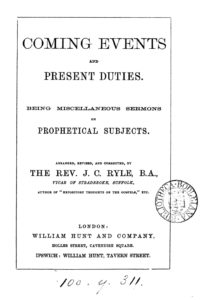 In in the last few decades, there has been a resurgence of interest in the writings of Bishop J.C. Ryle. Particularly his book, Holiness is widely known and beloved by many Christians, and rightly so. Much of this renewed interest has been greatly advanced by Banner of Truth, the main publishing house that has made Ryle’s writings available to a new generation of believers. In fact, almost all the major works by Ryle have indeed been republished by Banner of Truth[1], except for one book, Coming Events and Present Duties: Being Plain Papers on Prophecy which is the only one dealing specifically with his views regarding eschatology. Ryle himself described this book as a compact manual on his views regarding future prophecy.[2] Thankfully this book has been republished by other smaller publishers, but since Banner of Truth is much more widely known, and regarded as the authority on all things Ryle, the book has remained largely in the shadows to the present generation. One cannot state for certain, but it seems very likely that the reason for Banner of Truth not republishing this book by Ryle, is due to the non-premillennial (amillennial and postmillennial) views represented by the publishing house, and since Ryle’s book presents a clear case for premillennialism, it is understandable that the publisher would not be too eager in promoting this. Whatever the reason is for Banner of Truth, it needs to be recognized that this decision of not publishing this eschatological work by Ryle, while yet publishing all his other works, has contributed to the ignorance that exists among Christians, especially in theologically Reformed circles, regarding the somewhat controversial eschatological views of J. C. Ryle. It is also ironic, that already during his own lifetime, Ryle himself noted when republishing this book in 1879 after its initial printing 12 years prior (1867), that some of the chapters which he held to have real worth, had yet received little notice.[3] More importantly, Ryle stated that in his view one of the greatest shortcomings of the modern church was that pastors did not preach enough about the second coming of Christ and his future kingdom.[4] He strongly challenged the readers of his day, that modern Christians have become most unlike the early Christians, in the regard that they tend to completely ignore the doctrine of Christ’s second coming, making it a peripheral issue, whereas the early church placed it as an issue of first importance.[5] Therefore, it is very unfortunate that the book, which Ryle wrote specifically in regard to this woefully neglected doctrine, continues to be largely unknown and neglected even to this present day. When speaking about Ryle, even in the biographies about him, very rarely is there any mention regarding the importance he placed on rightly understanding the second coming of Christ and the nature of his kingdom.
In in the last few decades, there has been a resurgence of interest in the writings of Bishop J.C. Ryle. Particularly his book, Holiness is widely known and beloved by many Christians, and rightly so. Much of this renewed interest has been greatly advanced by Banner of Truth, the main publishing house that has made Ryle’s writings available to a new generation of believers. In fact, almost all the major works by Ryle have indeed been republished by Banner of Truth[1], except for one book, Coming Events and Present Duties: Being Plain Papers on Prophecy which is the only one dealing specifically with his views regarding eschatology. Ryle himself described this book as a compact manual on his views regarding future prophecy.[2] Thankfully this book has been republished by other smaller publishers, but since Banner of Truth is much more widely known, and regarded as the authority on all things Ryle, the book has remained largely in the shadows to the present generation. One cannot state for certain, but it seems very likely that the reason for Banner of Truth not republishing this book by Ryle, is due to the non-premillennial (amillennial and postmillennial) views represented by the publishing house, and since Ryle’s book presents a clear case for premillennialism, it is understandable that the publisher would not be too eager in promoting this. Whatever the reason is for Banner of Truth, it needs to be recognized that this decision of not publishing this eschatological work by Ryle, while yet publishing all his other works, has contributed to the ignorance that exists among Christians, especially in theologically Reformed circles, regarding the somewhat controversial eschatological views of J. C. Ryle. It is also ironic, that already during his own lifetime, Ryle himself noted when republishing this book in 1879 after its initial printing 12 years prior (1867), that some of the chapters which he held to have real worth, had yet received little notice.[3] More importantly, Ryle stated that in his view one of the greatest shortcomings of the modern church was that pastors did not preach enough about the second coming of Christ and his future kingdom.[4] He strongly challenged the readers of his day, that modern Christians have become most unlike the early Christians, in the regard that they tend to completely ignore the doctrine of Christ’s second coming, making it a peripheral issue, whereas the early church placed it as an issue of first importance.[5] Therefore, it is very unfortunate that the book, which Ryle wrote specifically in regard to this woefully neglected doctrine, continues to be largely unknown and neglected even to this present day. When speaking about Ryle, even in the biographies about him, very rarely is there any mention regarding the importance he placed on rightly understanding the second coming of Christ and the nature of his kingdom.
The purpose of this article is to identify the essentials of Ryle’s eschatology, and then compare those to the essentials of modern dispensationalism, in order to see if Ryle could indeed be described as dispensational in his views relating to prophetic truth.
Overview of Ryle’s Prophetical Opinions
For the purpose of understanding the eschatological and ecclesiological (as it relates to the church and Israel’s future as a nation) views held by Ryle, he provides a very helpful summary of his own ‘prophetical opinions’ in the preface of his book.[6] At the outset, he states his purposeful avoidance of anything ‘speculative or conjectural’, limiting himself to expressing only those ‘prophetical principles’ of which he is thoroughly convinced about. Ryle also explains his strong dislike for too much dogmatism in regard to prophetic matters which are not crystal clear, since this has been the cause of much discredit for eschatological study. These cautionary statements need to be kept in mind, since when Ryle later expresses his views on differing matters of prophetic study, they cannot be rejected as something minor is Ryle’s view, since he has already limited himself to presenting only those great principles, which he has unshakeable conviction about. [7] When the reader would desire to inquire more about the minor details of Ryle’s eschatological views, one is advised to the remember this purpose of Ryle, to present only the very clear and firm doctrines in regard to Christ’s second coming, avoiding any speculation of secondary issues.
In presenting the chief articles of his prophetical creed, Ryle lists 11 different points. In the first three, he begins by explaining his view in regard to his present church age being a “dispensation of election, and not of universal conversion.” In the explanation of his view, he shows his strong rejection of postmillennialism, even without mentioning it by name.[8] In articles four to six, he explains that the second coming of Christ is “the great event which will wind up the present dispensation” and would therefore be the subject of all believers daily longing and prayer. He states that believers are not only to be looking backwards to the cross, but also looking forward to his coming again, praying that his kingdom should come. In regard to the messianic kingdom of Christ, Ryle clearly states that his belief is that there will be no millennium before Christ comes, therefore strongly rejecting both amillennialism and postmillennialism. He also described the binding of Satan as something yet to take place, which Christ will do at his coming, before establishing his millennial kingdom.[9] In addition, Ryle states that at the coming of Christ “the earth shall be renewed, and the curse removed”, indicating his belief in what may be referred to as a New Creation Model, rather than a commonly held Spiritual Vision Model.[10]
In article seven, Ryle presents his belief in the future restoration and salvation of Israel as a nation. He clearly states that the Jews will be “gathered again as a separate nation, restored to their own land.” He also clarifies that this salvation will come by them being “converted to the faith of Christ”, which is obviously a reference to the truth of both Jews and Gentiles being saved by faith in Christ. It is also noteworthy that he does not here describe their salvation as being made part of the ‘church’ but simply ‘the faith of Christ’, suggesting that Ryle seemed to hold some distinction between the ‘church’, and future Israel being converted as a ‘separate nation’ to ‘the faith of Christ.’ This stands in contrast to the common view of Israel being saved as being made part of the church, instead of future Israel receiving messianic salvation as national Israel and being in some way distinct from the church of the present age. Ryle concludes this point by explaining that this salvation of future Israel will come after them “going through great tribulation.”[11] However, it also needs to be noted that Ryle did at times refer to the believers in the OT as the “Old Testament Church”, and therefore not keeping the word ‘church’ exclusively for the church of this present age.[12]
A subject closely connected to a right view of future Israel, is the approach that one takes in regard to interpreting Old Testament prophecy. In article eight, Ryle presents his strong conviction for understanding the ‘literal sense’ of the OT prophecies, a practice which has been greatly neglected by the Christian church. He also expresses great concern for the church’s misuse of OT prophecy, due to the common practice of ‘spiritualizing’ the language of the Bible. He describes this as a mistaken system of interpretation, which has often resulted in completely missing the true meaning of Scripture.[13]
In article nine, he expresses his caution in regard to interpreting the book of Revelation, stating that he would not fully follow the preterist (almost entirely fulfilled) nor futurist (almost entirely unfulfilled) schemes, but rather expects the truth to be found somewhere between the two views. He then follows by article ten, describing his view that the Roman Catholic Church is the Babylon and the antichrist, while at the same time clarifying that he believes “it highly probable that a more complete development of antichrist will yet to be exhibited to the world.” Finally, Ryle ends his summary with an exhortation for the believers “to expect as little as possible from Churches or Governments under the present dispensation”, encouraging them to place their hope and expectation of all good things at the second coming of Christ.[14]
At the end of his summary regarding his prophetical opinions, Ryle reminds the reader that he has purposefully refrained from stating his opinions on minor subjects (such as the rapture, the loosing of Satan, the destruction of Gog and Magog, etc.), which would be more conjecture on his part, rather than presenting the unquestionable truths of Scripture. Throughout his book, Ryle’s purpose is to draw the reader to a greater appreciation and anticipation of Christ’s second coming, something so often neglected by the modern church.
THE ESSENTIALS of RYLE’S ESCHATOLOGY
Even though the 11-point list by Ryle proves to be a very helpful summary of his beliefs regarding eschatology, there are three aspects which rise above the rest in importance throughout the book, especially in regard to the broader discussion about eschatology. The subjects of literal interpretation, the future salvation of national Israel, and the messianic kingdom of Christ, are covered extensively by Ryle in the different chapters of Coming Events and Present Duties. The importance of literal interpretation, functions as the foundational truth, upon which the rest of Ryle’s eschatology is built upon. And while he readily admits that there are many things regarding unfulfilled prophecy which are still hard to interpret and understand, he still clearly states that there are two great truths which in his mind “stand out as plainly as if written by a sunbeam”, being clear Scriptural truths, instead of simply conjecture. These two foundational truths are the premillennial advent of Christ, and the future salvation of national Israel. He even states that these two truths are so clearly laid out in Scripture, that “the denial of them is as astounding and incomprehensible to my own mind as the denial of the divinity of Christ.” Ryle’s comparison with the divinity of Christ is indeed a very strong statement, showing his unshakable conviction that these great truths are indeed the true teaching of Scripture.[15]
1. The Importance of Literal Hermeneutics
In regard to Ryle’s eschatological views, the most foundational aspect from which his other views flow, is his strong insistence on the literal interpretation of Scripture, the prophecies of the Old Testament in particular. He stated that the importance of correct principles of interpretation lie at the very root of the issue, being of such importance that it “cannot be overrated.”[16] Ryle did not shy away from clearly exhorting the reader to fully embrace the literal hermeneutic, calling them to “cleave to the literal sense of Bible words, and beware of departing from it, except in the case of absolute necessity.” He also warned strongly against the practice of allegorizing and spiritualizing the Bible, stating it to be a very unfortunate fact that this school of interpretation introduced by Origen has found so much acceptance within the Church of Christ.[17]
Ryle recognized that his view’s regarding eschatology were in conflict with the great majority of Christian commentators, particularly those from the Puritan and Reformed heritage whom he esteemed very highly[18], yet he boldly called for the rejection of all Protestant traditions which were not in accordance with the Bible. He charged the church to reject the traditional method of ‘spiritualizing’ OT prophecies, and instead to embrace “the good old principle that Scripture generally means what it seems to mean.” Surprisingly, Ryle even mentioned names of well-beloved Bible commentators (such as Pool, Henry, Scott, and Clark), stating that it is high time for the church to give up their “blind obedience to the opinions of such writers.” He also called the church to be consistent with their interpretation of Scripture, stating that just as we rightly interpret the prophecies of Christ’s first coming literally, so also should we do regarding with the prophecies of his second coming. And, since all agree that the prophecies regarding the judgment and scattering of Israel found literal fulfillment, so also should we think of the prophecies regarding their future salvation and restoration.[19] Ryle criticizes the Gentile church at large for being guilty of great inconsistency, in that passages relating to Christ’s first coming have been rightly interpreted literally, whereas passages relating to his second coming are instead interpreted spiritually. He describes this practice as an ‘arbitrary, reckless habit of interpreting’. He compares this error to that of the Jews, making the case that just as they have focused too exclusively on the future reign of the Messiah, so too has the Gentile church focused too exclusively on Christ’s first coming in humiliation. In regard to the seriousness of this error, he states that even though the consequences are not as fatal as ignoring the first coming of the Messiah, yet they are even more inexcusable, since Christians have been given even more light in the progress of revelation.[20]
In regard to Jewish evangelism, Ryle emphasized the importance of having a right understanding of OT prophecy, exhorting the Gentile believer to take care that they do not to commit the error of seeking to explain to the Jew that all the OT prophecies regarding Israel and kingdom of the Messiah have now been spiritualized and are being fulfilled in the Christian church.[21] He candidly stated, that the “more we can promote the habit of taking all Scripture in its plain literal sense” the more likely believers will be able to influence Jews and reach them with the gospel of Christ.
If one were tempted to think that Ryle’s insistence of ‘literal’ interpretation sounds like he did not understand the nature of language being used figuratively or symbolically, Ryle responds by stating that “when I speak of literal interpretation, I require no man to deny the use of figurative language”, explaining that he fully understands the use of different symbols, even in describing the glory of Christ. However, when it comes to interpreting prophecy literally, he states that “All I maintain is, that whenever God says He shall do or give certain things to Israel and Jerusalem in this world we ought entirely to believe that to literal Israel and Jerusalem those things will be given and done” (italics in original).[22]
2. The Premillennial Advent of Christ
In regards to his understanding of the nature of Christ’s kingdom, Ryle was firm in his belief that the millennium would be established after the second coming of Christ, contrary to the prevailing opinions of amillennialism and postmillennialism. He firmly exhorts the Christian church, and states candidly that much “delusion abounds on the subject of Christ’s kingdom”, and specifically warns his reader not to let any man deceive them by “purely traditional teachings” about the kingdom and other prophetic truth.[23]
Ryle often reminds his readers of the important principle of interpreting second coming prophecies in the same manner as first coming passages were filled, stating that as surely as Christ was born of a virgin and walked on this earth, “so surely He shall come with clouds in glory, and reign on the earth as a king.” He also explicitly charges the reader to understand that one of the great truths of Christianity is that Christ will one day rule over this whole world, and that even though “His kingdom is not yet set up… it will be set up in the day of His return.”[24]
In giving believers hope, Ryle specifically directs them to look for their peace in the cross of Christ, and to look forward to the coming kingdom for their joyful hope.[25] He also warns believers about the dangers of Christian teaching, which seeks to adapt the promises of future glory to “the present dispensation”, even if they come in the form of beautiful poetry, which Ryle described as a “mischievous infection” of twisting the text of prophecy.[26]
In regard to the question, if Christ is currently seated on the throne of David in heaven, Ryle clearly states that even though he is indeed anointed as the true Messianic king, he will not sit upon his throne until he has established his millennial kingdom upon the earth.[27] That even though Christ has the sure promise of the coming kingdom, he has not “yet received the crown and throne.”[28]
3. The Future Restoration of National Israel
Because of his unwavering commitment to literal interpretation of Old Testament prophecy, Ryle was strongly convinced about the future salvation and restoration of national Israel. And it is because of this that he also strongly protested against the habit of ignoring the prophecies regarding future Israel because of a faulty method of interpretation. Ryle spoke strongly against reinterpreting Israel to mean the church, or to claim that the church has replaced Israel, as claimed by many of those who hold to amillennialism.[29] He explained that his protest was against “the habit of allegorizing plain sayings of the Word of God concerning the future history of the nation Israel” (italics in original), and that to accommodate these promises to the Gentile church is a grievous habit “unwarranted by anything in Scripture.”[30] In describing God’s purposes for the Jews in the present age, Ryle comments that they have been kept separate by God, so “that they may finally be saved, converted, and restored to their own land.”[31]
In regard to the teaching of the OT prophets, Ryle explains that they all predict to one degree or another “that in the end of this dispensation the Jews are to be restored to their own land and to the favor of God.” And in defending his view in this regard, against those who would seek to contradict, Ryle responds that, “I can only say, that to my eyes, the future salvation of Israel as a people, their return to Palestine, and their national conversion to God, appear as clearly and plainly revealed as any prophecy in God’s Word” (italics in original).[32]
Ryle’s Premillennial Contemporaries
After overviewing the eschatological beliefs of Ryle, a question that naturally arises, was he completely unique among his contemporaries and even those who came before him? Specifically, in the regard of premillennialism and the belief in future restoration of national Israel, did other men in the Reformed tradition hold to the same views? Much could be said in overviewing the eschatological beliefs of Christians during Ryle’s time and before, but as a simple summary, few notable names will be here mentioned, to show that though Ryle did stand in opposition to the majority of Reformed Bible commentators and teachers, he was nonetheless not alone.
The first person in close proximity to Ryle in this regard was Horatius Bonar, the Scottish Calvinist and well-beloved hymn writer, whose strongly premillennial literature[33] had an influence on Ryle and whose works Ryle recommends to his own readers, if they desired to learn more about prophetic matters.[34] Another beloved hymn writer with similar eschatological convictions, was Augustus Toplady, also a strong Calvinist.[35] The young man, probably most known for his Bible reading plan, is Robert Murray M’Cheyne, whose strong belief in the future salvation and restoration of national Israel was a reflection of the same beliefs as held by Ryle and Bonar. [36] Another contemporary of Ryle, was the well-known Baptist preacher Charles Spurgeon, who also held to a strongly premillennial view regarding Christ’s second coming.[37]
During Ryle’s lifetime, there were also many others within the Church of England, who likewise held to strong premillennial convictions. One of those was Bishop Edward Bickersteth, who after becoming convinced of premillennialism, became a respected promoter of premillennial thought in Britain. Many Anglican evangelical leaders were also introduced to the robust arguments for the premillennial view by eminent premillennial scholars such as Edward Greswell and Edward Bishop Elliott.[38]
Interestingly enough, when it comes to the Reformed tradition as a whole established long before Ryle, most will undoubtedly be unaware that many of the Westminster divines themselves (such as Thomas Goodwin) were undeniably premillennial in their eschatology.[39] Many of them influenced by the works of Joseph Mede (1586-1638), the so called father of English premillennialism.[40]
THE ESSENTIALS of MODERN DISPENSATIONALISM
Much confusion exists, especially in the Reformed tradition, regarding the precise nature of dispensationalism. Some seem to suggest that as a theological system it also deals with matters relating to soteriology,[41] and not simply eschatology and ecclesiology as stated by dispensationalists themselves. Others seem to commonly equate pre-tribulationism with dispensationalism,[42] and even though it has certainly been a characteristic of dispensationalism, it is still not to be regarded as an unquestionable essential upon which the system stands or falls.[43]
In answering the question “What marks off a man as a dispensationalist?”, Charles Ryrie presents the defining marks of dispensationalism as three main categories: (1) a distinction between Israel and the Church; (2) a commitment to literal interpretation; and (3) an understanding the glory of God as the underlining purpose of God in the world. [44] After expounding on each of these aspects, Ryrie then concludes by stating that, “The essence of dispensationalism, then, is the distinction between Israel and the Church. This grows out of the dispensationalist’s consistent employment of normal or plain interpretation, and it reflects an understanding of the basic purpose of God in all His dealings with mankind as that of glorifying Himself through salvation and other purposes as well.”[45]
These same essentials of dispensationalism are also presented by John S. Feinberg, who expands the three essentials of Ryrie into six main headings: (1) multiple senses of terms like “Jew,” “seed of Abraham”; (2) correct understanding regarding literal hermeneutics; (3) covenant promises to Israel; (4) distinct future for ethnic Israel; (5) the church as a distinctive organism; and (6) God’s glory as a philosophy of history.[46] Even with some nuanced clarifications added to Ryrie’s three essentials, the basic definition still stays the same.
Progressive dispensationalists, Craig Blaising and Darrell Bock also offer their understanding regarding the common features of dispensational tradition. Even though their list also includes beliefs held by non-dispensationalists (such as authority of Scripture, and belief in dispensations, among others) they still present the same essentials, as already articulated by Ryrie and Feinberg.[47]
Most recently, Michael Vlach has helpfully summarized the common features found in all the lists by Ryrie, Feinberg, and Blaising and Bock, stating that three essential beliefs are shared by all of them. The first being the rejection of replacement theology, and understanding the distinction between the church and Israel. The second dealing with the belief in a future salvation and restoration for national Israel. The third aspect relating to the importance of literal interpretation, especially as applied to OT prophecy.[48] Vlach then proceeds to present his own articulation regarding the essentials of dispensationalism, and while he rightly fine-tunes the definition to be even better, the basic premise stays the same in regard to the three essentials presented by those before him.
Conclusion
After surveying both the essentials of J. C. Ryle’s eschatology and then the modern definitions regarding the essentials of dispensationalism, the question then remains, was Ryle a dispensationalist? Well, it is certainly true that Ryle never described himself as a dispensationalist (even though he often spoke about different dispensations) and could not be described as an actual dispensationalist, since he did not seem to hold to a developed form of dispensationalism.[49] His strong caution about making any statements regarding issues like the rapture and the temple in Ezekiel, also make it unlikely that he would be conformable as being considered part of a theological system which is often strongly known for their adherents views regarding these more minor eschatological details. Yet, it needs to be clearly recognised, that if compared to the essentials of dispensationalism as presented by modern dispensationalists themselves, Ryle is barely distinguishable, since his three essentials regarding prophetic truth are virtually exactly the same as those presented as dispensational essentials. Therefore, it seems best to understand Ryle’s hermeneutics, eschatology and ecclesiology as being in essential agreement with modern dispensationalism, even though he cannot be strictly described as a dispensationalist.
FOOTNOTES:
[1] Andrew Atherstone, ed. Bishop J. C. Ryle’s Autobiography: The Early Years (Edinburgh: Banner of Truth Trust, 2016), 361.
[2] J. C. Ryle. Coming Events and Present Duties: Being Plain Papers on Prophecy (London: William Hunt and Company, 1879), vii.
[3] Ibid., vii.
[4] Ibid., 16.
[5] Ibid., 10-11.
[6] Ibid., vii-xiv.
[7] Ibid., vii-viii.
[8] Ibid., ix.
[9] Ibid., x.
[10] Craig A. Blaising, “Premillennialism” in Three Views on the Millennium and Beyond, ed. Darrell L. Bock (Grand Rapids: Zondervan, 1999), 161.
[11] Ryle, Coming Events and Present Duties, x.
[12] Ibid., 103.
[13] Ibid., x-xi.
[14] Ibid., xi.
[15] Ibid., 133.
[16] Ibid., 127.
[17] Ibid., 128.
[18] Barry Horner. Future Israel: Why Christian Anti-Judaism Must Be Challenged. (Tennessee: B&H Academic, 2004), 343.
[19] Ibid., 49.
[20] Ibid., 45-46.
[21] Ibid., 46-47.
[22] Ibid., 51.
[23] Ibid., 54.
[24] Ibid., 56.
[25] Ibid., 59.
[26] Ibid., 55.
[27] Ibid., 12.
[28] Ibid., 54.
[29] William Cox. Amillennialism Today (Philadelphia: Presbyterian and Reformed Publishing, 1975), 45-46.
[30] Ibid., 126.
[31] Ibid., 186.
[32] Ibid., 189.
[33] Horatius Bonar. Prophetical Landmarks: Containing Date for Heling to Determine the Question of Christ’s Pre-Millennial Advent (London: James Nisbet and Co., 1847).
[34] Ryle, Coming Events and Present Duties, 52.
[35] Augustus Toplady. The Works of Augustus Toplady. (Virginia: Sprinkle Publications, 1987), 447.
[36] Andrew A. Bonar, Memoir and Remains of Robert Murray M’Cheyne (Edinburgh: Banner of Truth, 1844), 196-197.
[37] Dennis Swanson. Charles H. Spurgeon and Eschatology: Did He Have a Discernable Millennial Position? (M.Div. diss., The Master’s Seminary, Los Angeles, 1994), 111.
[38] Iain Murray. The Puritan Hope: A Study in Revival and The Interpretation of Prophecy (Edinburgh: Banner of Truth, 1971), 196.
[39] John Warwick Montgomery “Millennium” in The International Standard Bible Encyclopedia. Volume Three, edited by Geoffrey W. Bromiley, 356-361. (Grand Rapids: Eerdmans, 1986), 359.
[40] Edward Hindson. “Mede, Joseph” in Dictionary of Premillennial Theology, edited by Mal Couch, 250-251 (Grand Rapids: Kregel Publications, 1996).
[41] Keith A. Mathison. Dispensationalism: Rightly Dividing the People of God? (New Jersey: P&R Publishing, 1995), 45-106.
[42] R. C. Sproul. The Last Days According to Jesus (Grand Rapids: Baker Books, 1998), 196-198.
[43] Michael Vlach. Dispensationalism: Essential Beliefs and Common Myths. Revised and Updated. (Los Angeles: Theological Studies Press, 2017), 99.
[44] Charles, Ryrie. Dispensationalism Today (Chicago: Moody Press, 1965), 43-47.
[45] Ibid., 47.
[46] John S. Feinberg, “Systems of Discontinuity,” in Continuity and Discontinuity: Perspectives on the Relationship Between the Old and New Testaments, ed. John S. Feinberg, 63–86 (Wheaton, IL: Crossway, 1988), 67-85.
[47] Craig A. Blaising, Darrell L. Bock. Progressive Dispensationalism. (Wheaton, IL:Bridgepoint, 1993), 13-21.
[48] Vlach, 25-26.
[49] Steven L. McAvoy. “Ryle, John Charles” in Dictionary of Premillennial Theology, edited by Mal Couch, 383-385 (Grand Rapids: Kregel Publications, 1996), 385.
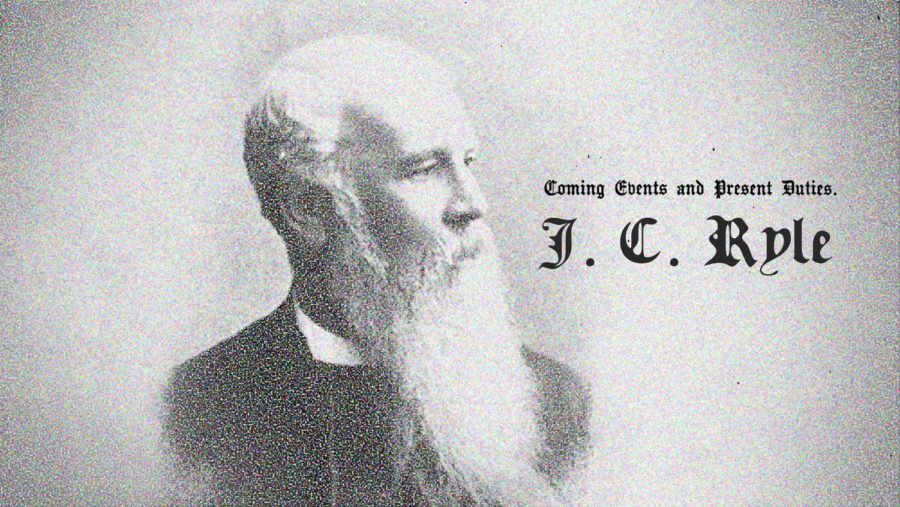

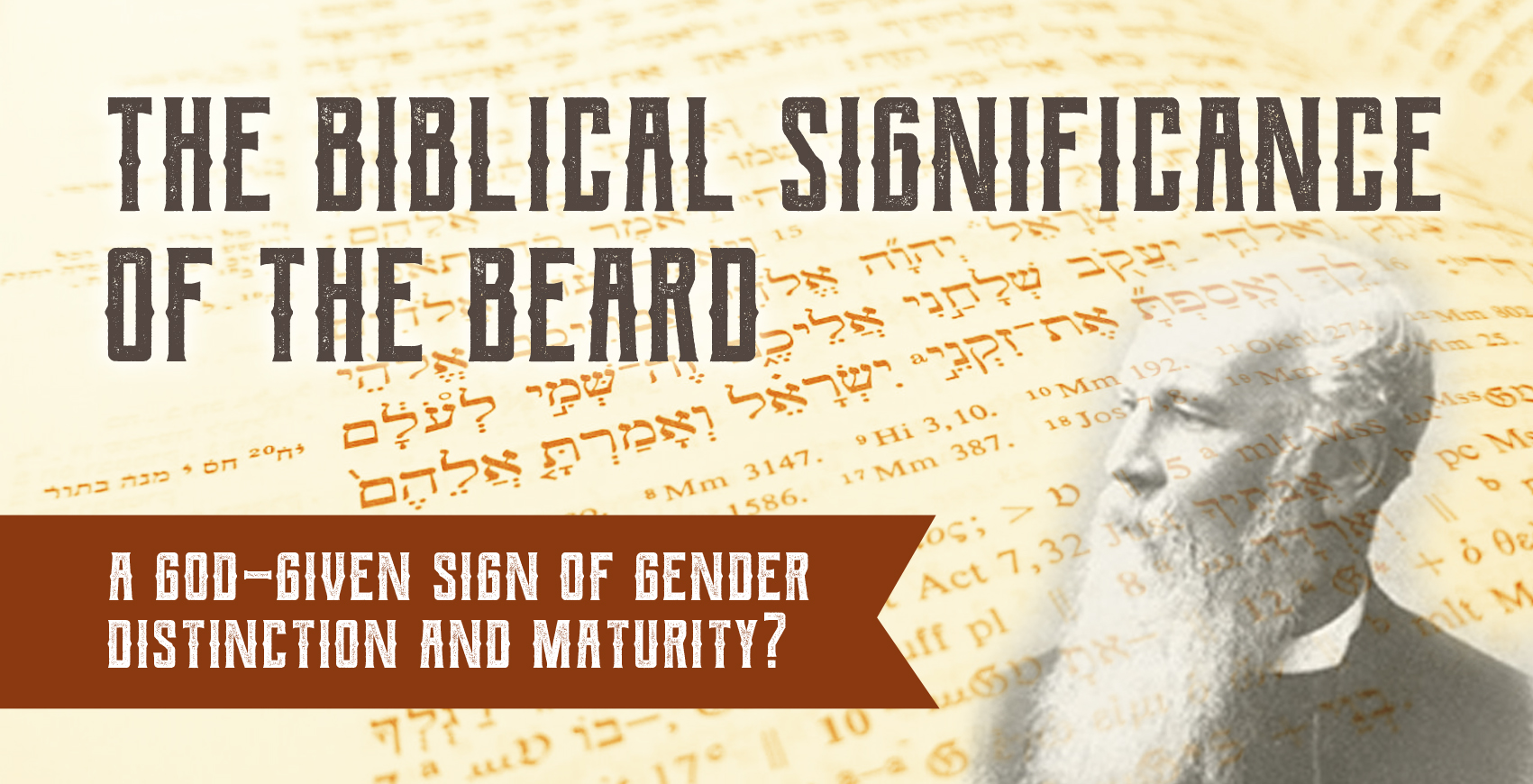
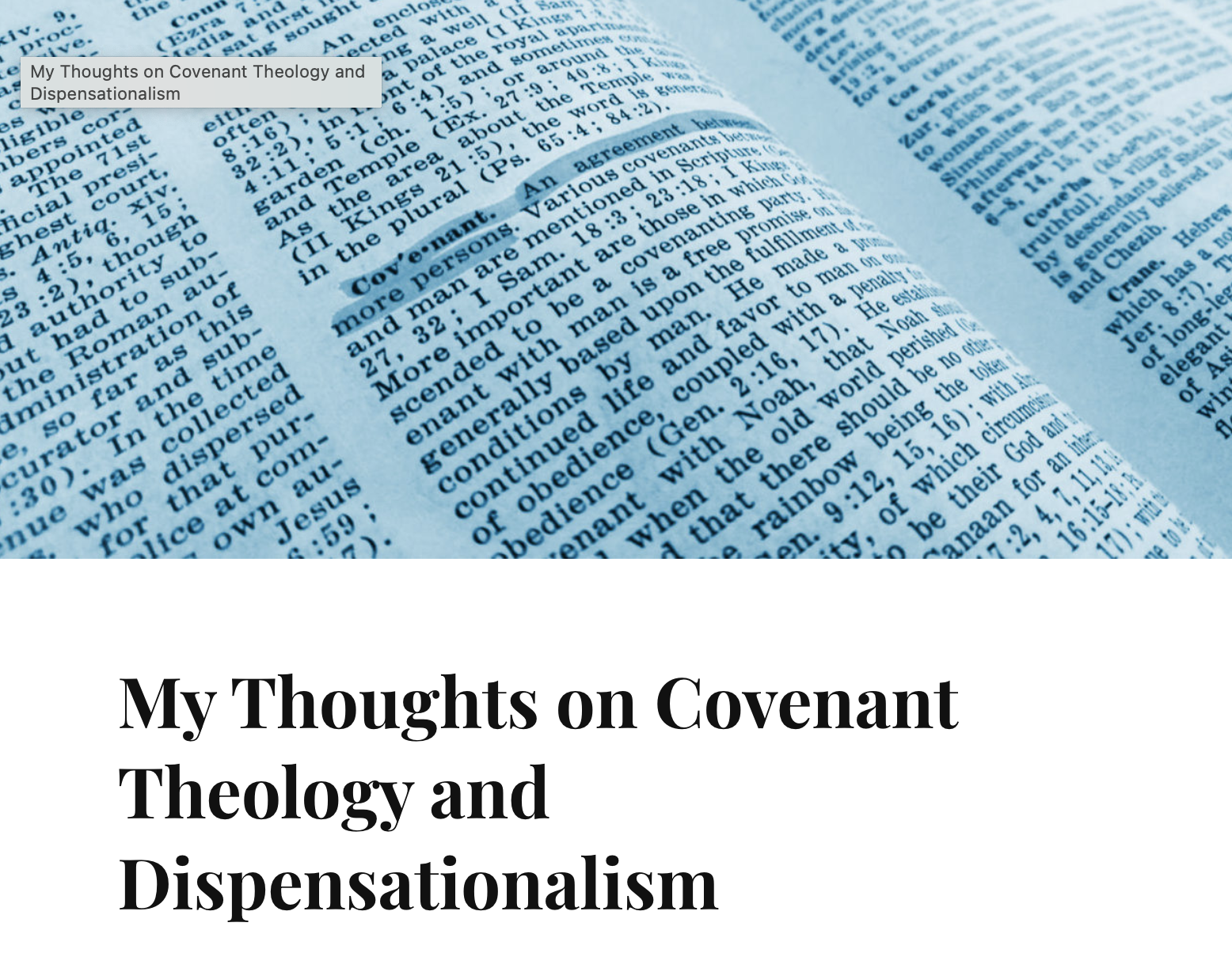
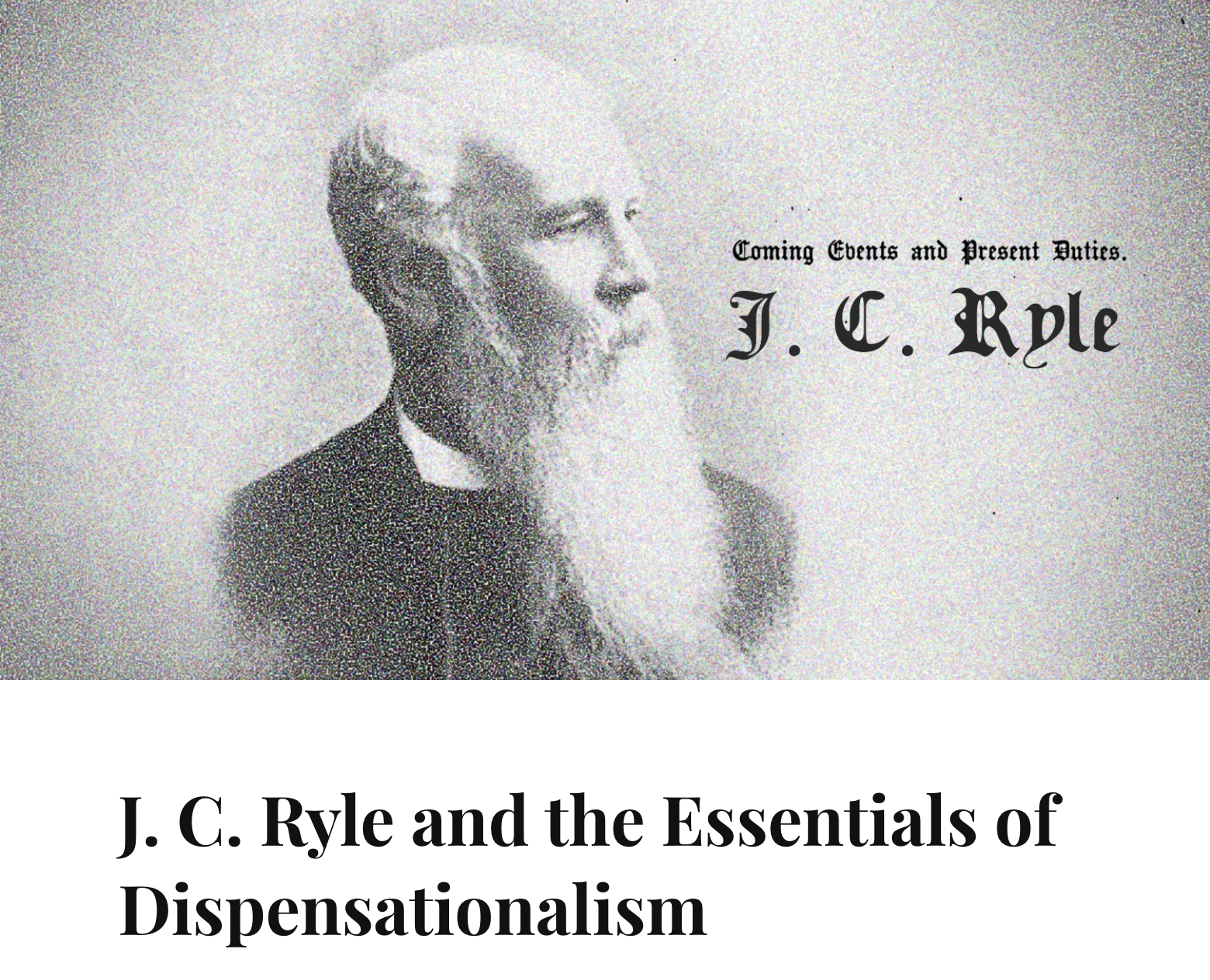
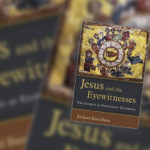
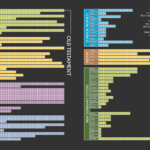

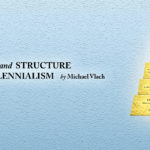
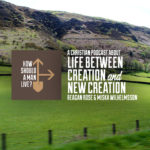

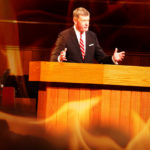
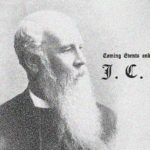
Paul Burgess
Well done.
Walter Schroedter
This book is also available under the title “Are You Ready For The End Of Time?”, at Christian Focus Publications (www.christianfocus.com), https://www.christianfocus.com/products?q=Are%20you%20re&hPP=10&idx=Products_publicationasc&p=0&nR%5Bprice.uk%5D%5B%3E%3D%5D%5B0%5D=1&restrict=
or at Amazon https://www.amazon.com/Are-You-Ready-End-Time/dp/1857927478.
Thank-you for such a good summary. I find myself in essential agreement with JC Ryle’s position. Kudos to him for standing up for his view in a world that thought differently.
Simon Kwa
Thank you so much for sharing this. Never mentioned in reform circles. Now I am more sure of my church stand -reform and premil
Anne Pack
I was thrilled to read this. God has been leading me to this position over the past 2 or 3 years. Ihave been so perplexed as to why the churches in the U.K. are not teaching these things. Now I have the answer,
. I pray many more christians will come to embrace these truths that J.C.Ryle belived.
In Christ, Anne Pack.
Anne Pack
Most enlightening and so true.
Helmi Berkah
How can I get your blog articles automatically by email? Would be gret!
In eternal bonds,
Tyler Moore
Would share if there are any reputable copies of this work in print today?
Thank you!
Bill Saunders
Well done Miska, an excellent essay that appraises Bishop JC Ryle’s principles accurately before expressing your own interpretation[s] associated with it. You have refreshed the hearts of the saints with your evident devotion to God, to the truth of His word, the service of the saints, and to good works inspired by loving obedience to him – thank you. Truly, a theologian is a person of prayer, set on fire by union with God in the Holy Spirit-in Christ Jesus. We pray this for you Miska as you are rightly dividing the word of truth, as your faith seeks increasing understanding, the Lord grant you and your family Holy Wisdom, in harmony with the JOY He has set before you, you endure come what may, to the salvation of your own souls and that of others, to the praise of His glorious grace, thank You Lord, amen
May all pastors like you Miska, who are with Christ on the frontline of the battle, and who bear the brunt of the increasing persecutions, pains and pressures associated with the End Times, ever hold to their first love of Christ. Enabling you to resist any drift towards coercive and controlling unity imposed on God’s flock. May we all in the Spirit of Psalm 133 make EVERY effort to maintain the Unity of The Spirit in the bond of Peace, please ensure it be so with us all Beloved Lord Jesus, thank You Lord, amen
Sara
Excellent overview of JC Ryle’s eschatology. I was first introduced to him while attending a Reformed Presbyterian church and enjoyed reading his short book on parenting, but had no idea that he was premill and had dispensational leanings (which I would have loved to have known back then as I was then, and still am, a dispensationalist!). I am pleased to have found your blog while searching about Ryle today and I look forward to reading more of what you’ve written. You are gracious and fair in your writing of other views and your thorough research is evident. Thank you!
Ryan Martin
Thanks for your work